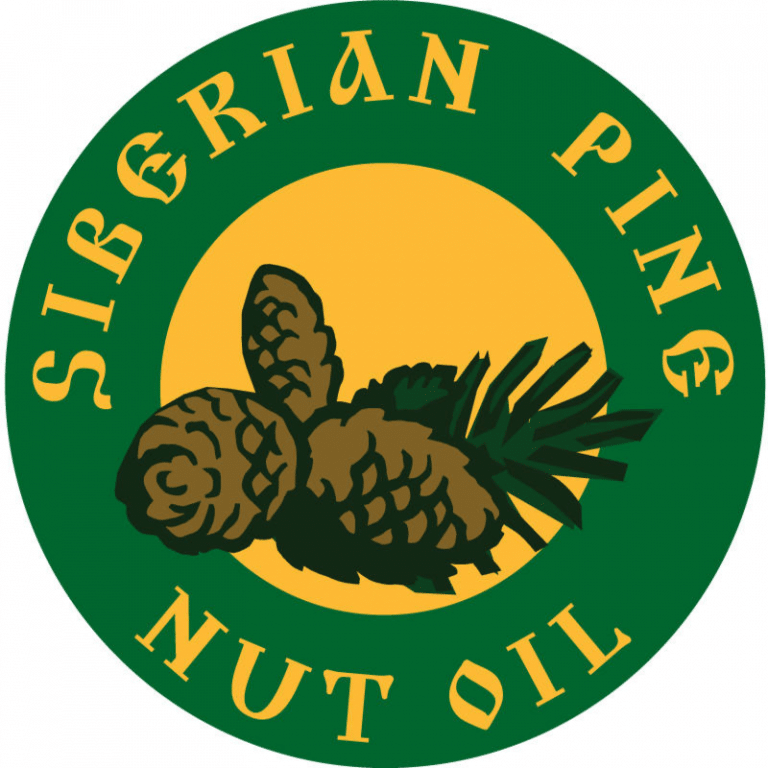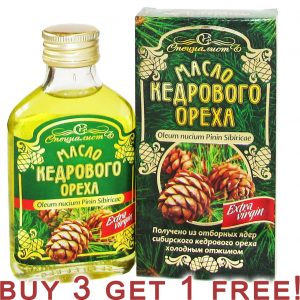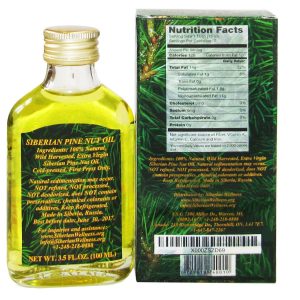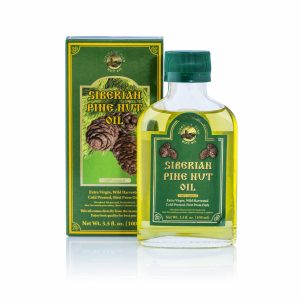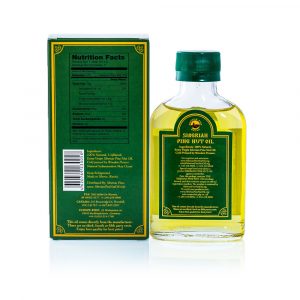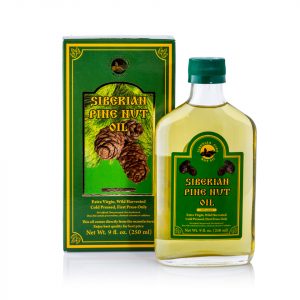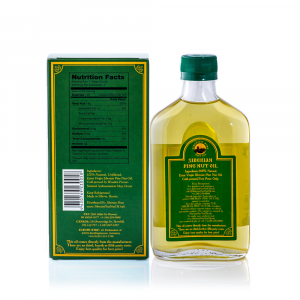Pine nut oil for H.Pylori
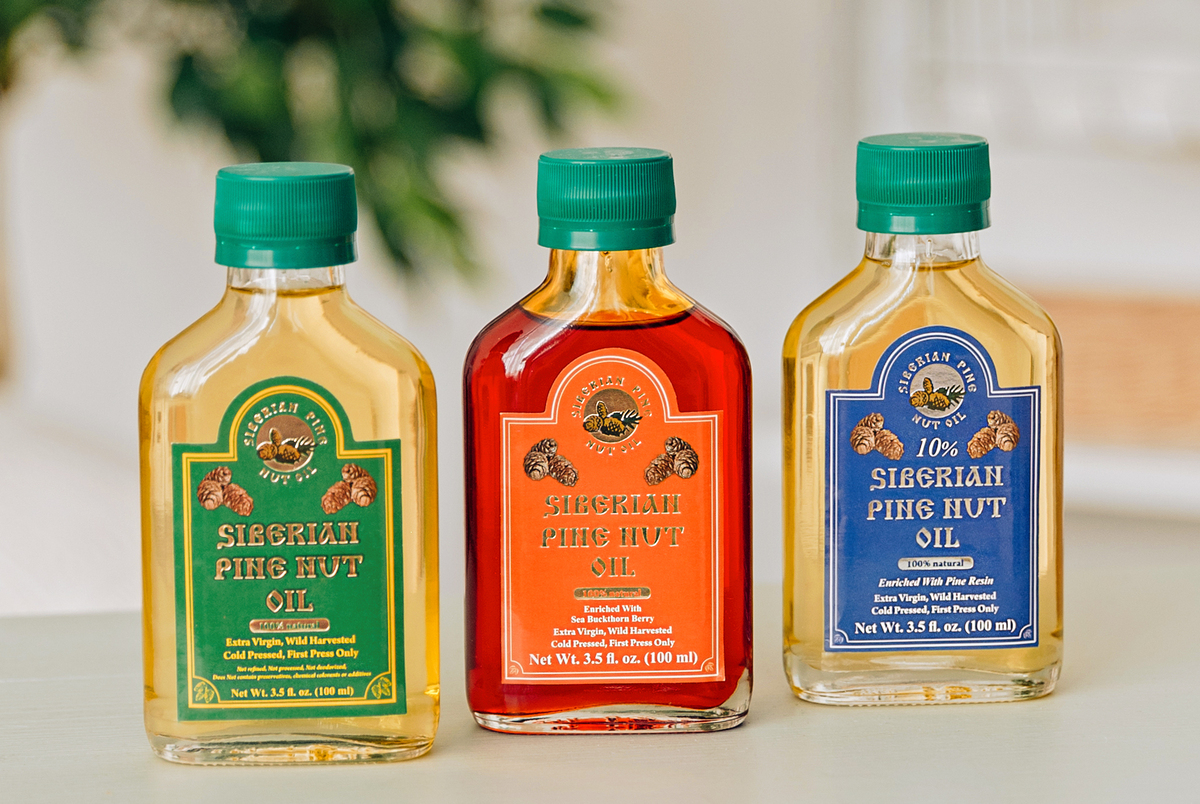
Helicobacter pylori is a bacterium that lives and multiplies in the stomach and duodenum. In general, bacteria can be beneficial or harmful, and H. Pylori is harmful. It leads to gastric and duodenal ulcers, gastritis, duodenitis. Numerous studies have proven that H. Pylori causes cancer of various organs of the gastrointestinal tract.[1] At the same time, more than 50% of the world’s population has H. Pylori in the upper gastrointestinal tract!
Existing protocols for getting rid of this dangerous bacterium require the use of at least 3 drugs, 2 of which are antibiotics. Of course, such treatment harms the body, and after it a period of restoration of healthy microflora and natural immunity is required. But there is an alternative, a completely natural and harmless remedy!
The first scientific publications on the role of pine nut oil in the fight against H. Pylori appeared in the early 2000s. Researching the successful use of pine nut oil in the treatment of peptic ulcers, doctors found that this remedy also helps to get rid of pathogenic bacteria. [2][3] The use of pine nut oil for H.Pylori treatment is effective due to the fact that it envelops and heals the mucous membranes of the gastrointestinal tract, has anti-inflammatory properties, and activates the synthesis of digestive hormones CCK and GLP-1.
Synthesis of CCK and GLP-1 hormones
In the gastrointestinal tract, H. Pylori produces urease — an enzyme due to which the concentration of ammonia in the mucosa increases and pH rises. As a result, the secretion of gastrin, hydrochloric acid, and pepsin increases. These substances provoke the development of ulcers. However, the body has a natural defense mechanism against this situation: two special hormones that, when produced, increase the absorption of essential nutrients and suppress the secretion of acid, thereby neutralizing hyperacidity and the damaging effects of ammonia. These are the hormones CCK (cholecystokinin) and CLP-1. Danish scientists have found that consumption of pine nut oil increases the secretion of these hormones.[4] Thus, pine nut oil launches the body’s defense mechanisms against the destructive effects of H.Pylori.
Benefits for the gastrointestinal mucosa
Common treatment for H. Pylori, according to the Mayo Clinic, is bismuth subsalicylate, a drug that coats the bacterium-damaged mucosa and protects it from stomach acid that can cause ulcers to grow.
However, pine nut oil is rich in vitamin A (the main nutrient for mucosal health) and folic acid (accelerates the regeneration of mucous membranes), so it helps to achieve the same effect. The very consistency of pine nut oil – tender and enveloping – helps to protect the gastrointestinal tract from pathogenic bacteria.
Anti-inflammatory effect
H. Pylori is an infectious disease. Therefore, in order to treat it and prevent serious consequences (up to an oncological diagnosis), it is important to reduce the inflammatory process. Almost all unsaturated fatty acids have a pronounced anti-inflammatory effect, including those that are rich in pine nut oil: alpha-linolenic, linoleic, oleic, and pinolenic. [5] The anti-inflammatory effect of acids is due to the fact that they form prostaglandins, special substances that suppress inflammatory reactions.
How to use pine nut oil for H.Pylori treatment and prevention?
We recommend taking 1-2 teaspoons of pine nut oil on an empty stomach, 30 minutes before each meal. Regularity is very important: the course of treatment should be at least 21 days. You can also add еру oil to your favorite salads as a dressing, make smoothies with it, add it to cereals and muesli.
Please Note! Pine nut oil is a completely natural and absolutely harmless alternative to medical treatment, but we do not urge you to neglect the doctor’s recommendations. You can use it in parallel with prescribed medications. In this case, it minimizes the harm that antibiotics cause to the immune system and microflora.
Be healthy!
REFERENCES
[1] Amieva M, Peek RM Jr. Pathobiology of Helicobacter pylori-Induced Gastric Cancer.
[2] Lelyavina T.I. The use of pine nut oil in the treatment of difficult-to-heal gastroduodenal ulcers
[3] Isakov V.A., Ivannikov I.O. Pharmacoeconomics in diseases associated with H. pylori infection
[4] Sørensen KV, Kaspersen MH, Ekberg JH, Bauer-Brandl A, Ulven T, Højlund K. Effects of Delayed-Release Olive Oil and Hydrolyzed Pine Nut Oil on Glucose Tolerance, Incretin Secretion and Appetite in Humans.
[5] Tortosa-Caparrós E, Navas-Carrillo D, Marín F, Orenes-Piñero E. Anti-inflammatory effects of omega 3 and omega 6 polyunsaturated fatty acids in cardiovascular disease and metabolic syndrome.
These articles come directly from researchers and are passed on to everybody. siberianpinenutoil.org assumes no liability for any content in these articles. For Educational purposes only. This information has not been evaluated by the Food and Drug Administration. This information is not intended to diagnose, treat, cure, or prevent any disease.
Unique Siberian Pine Nut Oil 3.5 fl. oz. (100 ml)
Original price was: 42.65$.24.95$Current price is: 24.95$.Unique Siberian Pine Nut Oil 8.75 fl. oz. (250 ml)
Original price was: 97.20$.58.80$Current price is: 58.80$.We are ready to deliver pine nut oil:
410 Mill St SE, Salem, OR 97301, United States
+1-855-218-0888
info@siberianpinenutoil.org
